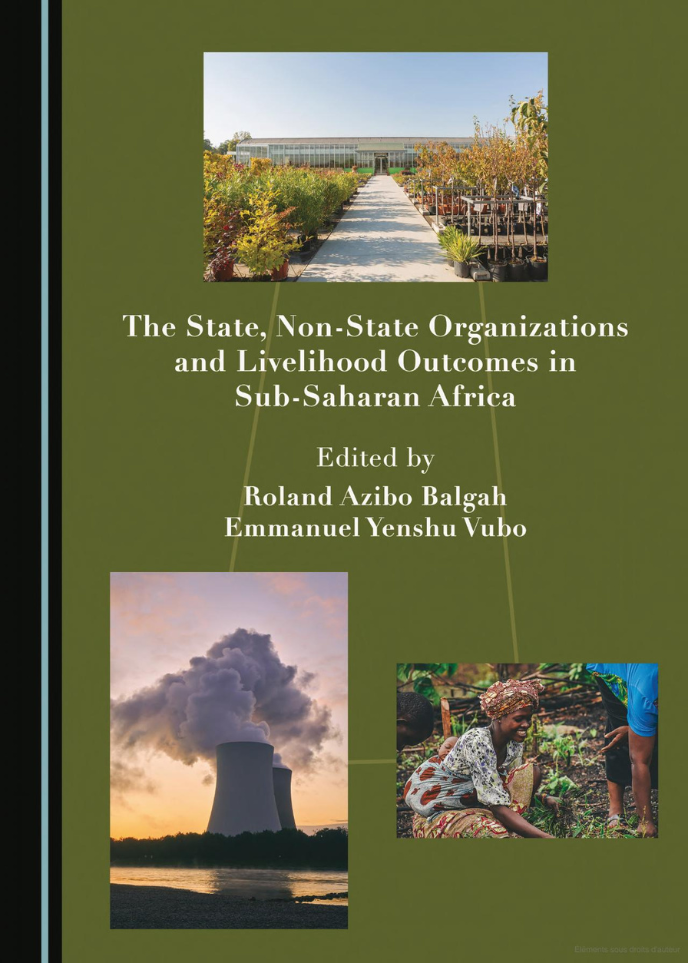
The State, Non-State Organizations and Livelihood Outcomes in Sub-Saharan Africa
Year of Publication: 2024
Authors: Suiven John P., Wirngo Harry M., Nyong Princely A.
Abstract
Theoretical contestations in development literature portray disagreements among scholars on who should lead development. While state-centric proponents propel states as the epicentre for development, an opposing narrative conceptualises development as best undertaken by non-statc actors. This theoretical divide has been at the basis of the allodoxia between theoretical constellations and empirical reality. The groove between theory and empirics persists, despite advances in both camps. Given the changing nature and functions of the state, the emergence of non-state actors and the transformation of the development efforts into livelihood benefits, it becomes crucial to revisit these issues especially in Sub-Saharan Africa (SSA), where development has recorded the slowest rates in the world. This edited volume eases the theoretical and empirical tensions on the subject, by verifying theoretical constellations with contemporary empirical reality.
The end of the 20th century was marked by the end of the Cold War, the rise of neoliberalism, a decline in the role of the state accompanied by the promotion of developments away from the state and within the confines of new actors and the emergence of new conflicts. New development blue prints such as social development and sustainable development were advanced on the global scene, as structural adjustment schemes were being moderated with qualifiers such as social dimensions of adjustment, development with a human face, and preoccupation with poverty (fight against poverty, poverty reduction, and poverty alleviation).
These ideological and programmatic revisions seemed to have faded in rapid succession but the key issues of development remain. The UN’s advancement and promotion of millennium development goals and then sustainable development goals are an eloquent testimony, as are the stark realities of precarious livelihoods. The book provides an opportunity to have a retrospective look into the past but also explore the possibilities of new agendas (emergence, ten-ycar development plan, Africa’s Agenda.
The end of the 20th century was marked by the end of the Cold War, the rise of neoliberalism, a decline in the role of the state accompanied by the promotion of developments away from the state and within the confines of new actors and the emergence of new conflicts. New development blue prints such as social development and sustainable development were advanced on the global scene, as structural adjustment schemes were being moderated with qualifiers such as social dimensions of adjustment, development with a human face, and preoccupation with poverty (fight against poverty, poverty reduction, and poverty alleviation).
These ideological and programmatic revisions seemed to have faded in rapid succession but the key issues of development remain. The UN’s advancement and promotion of millennium development goals and then sustainable development goals are an eloquent testimony, as are the stark realities of precarious livelihoods. The book provides an opportunity to have a retrospective look into the past but also explore the possibilities of new agendas (emergence, ten-ycar development plan, Africa’s Agenda.
